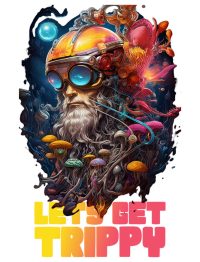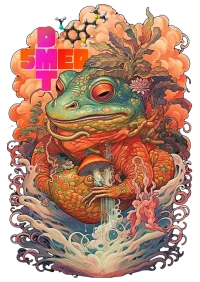Psilocybin and Longevity: 5 Surprising Breakthroughs in Mushroom Anti-Aging Science
Psilocybin and longevity have just been linked in new 2025 research that shocked even seasoned psychedelic scientists. Long celebrated for its role in psychedelic-assisted therapy, psilocybin — the psychoactive compound in magic mushrooms — may also hold the key to extending lifespan and improving healthspan. This shift from mental health treatments to anti-aging potential is generating serious buzz, but is the hype backed by hard science?
Below, we’ll break down five breakthroughs from the latest study, dive into the biological mechanisms, explore the risks, and place this in the broader context of psychedelic medicine and longevity science.
Breakthrough 1: Psilocybin Extends Cell Lifespan
Recent research published in npj Aging showed that psilocin, the active metabolite of psilocybin, extended the lifespan of cultured human skin and lung cells by up to 57%. The treated cells displayed:
-
Reduced markers of cellular senescence
-
Preserved telomere length
-
Increased SIRT1 expression (a key longevity-related enzyme)
Why it matters: Telomere shortening and cellular senescence are core hallmarks of aging. Extending cell life in vitro doesn’t guarantee extended human life, but it provides a proof of concept that psilocybin’s influence isn’t limited to the brain.
Breakthrough 2: Lifespan Boost in Aging Mice
In the same study, aged mice receiving intermittent psilocybin dosing lived approximately 30% longer than control mice. Researchers also noted:
-
Reduced fur graying
-
Improved mobility and activity levels
-
Better mitochondrial function
Why it matters: While mouse studies don’t always translate directly to humans, they’re a critical step in establishing systemic effects. This result hints that psilocybin’s benefits could cross from cell cultures into whole-organism biology.
Breakthrough 3: Anti-Inflammatory and Stress Resilience Effects
Chronic inflammation accelerates biological aging, while long-term psychological stress damages cellular health. Psilocybin appears to modulate:
-
Pro-inflammatory cytokines (reducing harmful levels)
-
Cortisol regulation (helping buffer stress responses)
-
Neuroinflammation (benefiting both brain and body)
Why it matters: By addressing inflammation and stress simultaneously, psilocybin could be working through two major aging accelerators.
Breakthrough 3: Anti-Inflammatory and Stress Resilience Effects
Chronic inflammation accelerates biological aging, while long-term psychological stress damages cellular health. Psilocybin appears to modulate:
-
Pro-inflammatory cytokines (reducing harmful levels)
-
Cortisol regulation (helping buffer stress responses)
-
Neuroinflammation (benefiting both brain and body)
Why it matters: By addressing inflammation and stress simultaneously, psilocybin could be working through two major aging accelerators.
Breakthrough 4: Neuroplasticity Beyond the Brain
We already know psilocybin promotes neuroplasticity — encouraging the growth of new neural connections. This study suggests similar regenerative processes might be happening in peripheral cells, potentially enhancing tissue repair and resilience across the body.
Why it matters: This positions psilocybin as not just a mental health tool, but as a systemic health modulator — a bridge between psychedelic medicine and longevity science.
Breakthrough 5: Mind-Body Synergy in Healthspan
Psilocybin’s potential impact on longevity might come not only from direct biological effects, but also from behavioral catalysts. One guided psychedelic session has been shown to:
-
Improve mood and reduce depression
-
Boost motivation for healthy lifestyle changes
-
Strengthen social connections (which correlate with longer life)
Why it matters: Even if psilocybin’s cellular benefits prove modest, its role as a catalyst for sustained healthy behaviors could still make it a powerful healthspan tool.
Risks, Limitations, and Reality Checks
While the data are exciting, they’re also preclinical. We do not have human trials proving psilocybin extends life. There are unanswered questions about:
-
Optimal dosing for longevity effects
-
Long-term safety outside mental health treatment settings
-
Legal restrictions (psilocybin remains a Schedule I drug in the U.S., except in limited jurisdictions)
Caution: DIY experimentation carries legal, psychological, and physical risks.
Cultural Context and Ethical Considerations
Psilocybin use has deep roots in Indigenous spiritual practices. As the longevity industry explores its potential, ethical integration and respect for these traditions is essential. Psychedelic medicine must avoid repeating extractive patterns seen in other wellness trends.
How to Follow This Research Responsibly
-
Wait for peer-reviewed human trials
-
Avoid underground self-experimentation
-
Support research at credible psychedelic research centers
-
Combine evidence-based lifestyle habits with curiosity for emerging science
External Source (DoFollow): Read the full npj Aging study here
Internal Link (DoFollow): Explore our guide to psychedelic-assisted therapy
FAQ – Psilocybin and Longevity
What is the connection between psilocybin and longevity?
Recent studies in cells and mice suggest psilocybin may slow biological aging and extend lifespan, but human trials are needed.
Does psilocybin have proven anti-aging effects in humans?
No. All longevity-related findings so far come from preclinical studies.
Could microdosing psilocybin promote longevity?
The effective dose for longevity effects (if any) is unknown. It may differ from therapeutic or recreational doses.
Is psilocybin safe for long-term use?
Short-term clinical use for mental health appears safe in controlled settings. Long-term safety for longevity is unproven.
Where can I follow credible updates?
Check peer-reviewed journals and reputable psychedelic research organizations.




